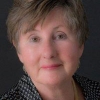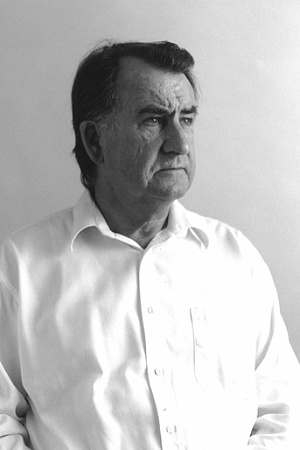If This Is a Jew
The foremost challenge of our time remains the passing of Jewish ethnicity, the idea that Jews are automatically joined at the hip by language, history and memory ... Without doubt that era is gone ... The age of ethnicity has become the age of fractured identity, where we struggle to decide what aspect of identity takes priority and when.
Rabbi Lawrence Hoffman1
For most of my life I have thought of myself as a secular Jew; fascinated by the turbulent history of the Jews, not part of synagogue life. All that changed in 2012. We were living in Goulburn, New South Wales, at the time. My husband was on the point of retirement and we were about to move back to Victoria. During winter, influenza and then pneumonia raged through the town; some people died. Despite being vaccinated, I too succumbed. One morning, I was convinced that someone had placed a ton of concrete on my chest. Something had. My next memory is of waking during the night in hospital in an isolation room, hooked up to tubes and monitors. A man was sleeping in an armchair next to the bed. I recognised him as the doctor who had admitted me, hours, days, years ago. I learnt later that he had been there most of that night pumping antibiotics into me.
‘You’re a lucky woman,’ he said. ‘During the worst of this you were trying to remember a Jewish prayer. I think you may have unfinished business. By the way, you don’t have much in the way of white blood cells. Neutropenia is endemic amongst Sephardic Jews. Your husband tells me you’re Dutch. Up to you now to figure out the jigsaw.’
Continue reading for only $10 per month. Subscribe and gain full access to Australian Book Review. Already a subscriber? Sign in. If you need assistance, feel free to contact us.















Comments (2)
In particular, I loved Elisabeth’s description of her ‘feast of audacious hospitality’. I, too, am lucky enough to have friends from the major religions – and while I have allegiance to no particular faith, I take great pleasure in occasional spontaneous visits to different places of worship – be it temple, synagogue, mosque or church – for the sense of unity among the congregation, the peace, calm and hope that somehow thickens the very air and for the uniqueness of the individual services. There is difference in how the message is delivered, but overall, how similar is that message.
And it is this similarity that is the thing. As Elisabeth points out ‘… as so often happens when Jews and Muslims get together, we ended up discussing what unites us rather than what divides us’. My current project is an historical novel based on a friendship between three young men – a Catholic, a Muslim and a Jew – set in fifteenth-century Spain. Even as power-mongering starts to splinter their lives, their friendship stands firm. But as with the current turmoil in Spain – or anywhere else for that matter – the youth are somewhat discounted.
If I were allowed one wish, it would be that out of the ignorance and upheaval of the current day, understanding and coherence not only eventuates, but triumphs. It begins by educating ourselves and letting go our own fears and prejudices – and ends, I think, in a willingness to listen to others. As the Paul Kelly song goes: ‘From little things, big things grow …’ A more cohesive, less fearful world? You never know.
Leave a comment
If you are an ABR subscriber, you will need to sign in to post a comment.
If you have forgotten your sign in details, or if you receive an error message when trying to submit your comment, please email your comment (and the name of the article to which it relates) to ABR Comments. We will review your comment and, subject to approval, we will post it under your name.
Please note that all comments must be approved by ABR and comply with our Terms & Conditions.